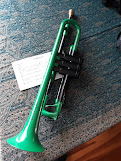Today the PBs come together for one of their music jams.
 |
| Not this sort of jam. |
Here is a short history of the five boys. In this family baby names, either the child's first attempt to say his own name or the first attempt of a brother, stick for a very long time. So, today I will refer to the boys by these names.
Tiddlelegs (later he often had 'the piss' added to the shortened version of his Christian name) was the first born, followed by Cheena (later to be called Big Cheen). These two were born in Napier and moved to a flat in Pirie Street, Wellington, with their parents, in 1953. A little later they moved to Garden Road, Northland, Wellington and Ro (later his dad started calling him Rotten Ro) was born around this time. At Garden Road Tiddlelegs and Cheena slept in a bunk in a room next their parents' bedroom which was later to become a day room, much later to house a snooker table. Tiddlelegs, the older boy, slept in the top bunk and Cheena slept in the bottom bunk. Ro, a baby, was in with the parents. A little later the 'spare room' at the back of the house (a junk room really) was turned into a bedroom and the bunk was moved into there. Some of the room was taken so that the bathroom could be extended, and an inside toilet was added. Much later the outside toilet became a good place to sneak out for a smoke. When Ro was a bit older, Cheena moved into the top bunk, Ro moved into the bottom and a single bed was added for Tiddlelegs. This arrangement stayed until the boys, in their early twenties left home. They weren't allowed to go flatting while they were at university.
One day, when Cheena was eight and Ro was five, their mother brought home two violins from a school fair. They looked very appealing and both Cheena and Ro put their hands up to learn them, "Me! Me! I want to!" A bit later both the boys started violin lessons at St. Mary's Convent. Tiddlelegs tried the cello for a short time and then switched to the piano. At Marist Thorndon the boys often performed as a trio for school concerts. The parents and teachers thought they were cool, but the students weren't into that type of music. This was the 1960s and the guitar was the cool thing. Sometimes, on a bus, some young guys would ask Cheena if that thing in a case was a guitar and he would always say, "Yes." Liar.
As a teenager Tiddlelegs took up the guitar and was soon frequenting folk clubs. Two more boys arrived. They were Neenee and Dr. Dardu. These two boys were much younger. They got into playing some guitar, though Dr. Dardu's main instrument was the piano. They formed a band called T.T.O.U. (The Two Of Us). Neenee wrote a song with these lyrics...
What are you doing Dardu?
What are you doing Dardu?
You might as well get on with your job.
It was never a hit but, funnily enough, I sometimes sing it to my grandson.
All the boys continued to play music. When Big Cheen became a teacher and wrote a musical for a couple of schools called Seaview Appleby, the pit orchestra was made up of the five boys.
The boys all spent a lot of time playing their individually preferred styles of music. Tiddlelegs proved the most successful when, in 2009, he won an award for a CD of his music called Trouble on the Waterfront.
Later The Prowse Brothers was formed and the boys played together for a few years.
These days they get together for the occasional jam.
So, what instruments are the boys playing these days?
Tiddlelegs: Mainly guitar and vocals, but he also plays banjo and tres.
Big Cheen: Violin, double bass and a bit of guitar. He also plays trumpet.
Rotten Ro: Violin, cello and a bit of piano and drums.
Neenee: Guitar, vocals, and a bit of banjo and bass guitar.
Dardu: Plays 14 instruments, including piano, guitar, double bass, tenor sax and flugel horn.
There you have it.
Ciao tutti.
(1).png)
(1).png)













